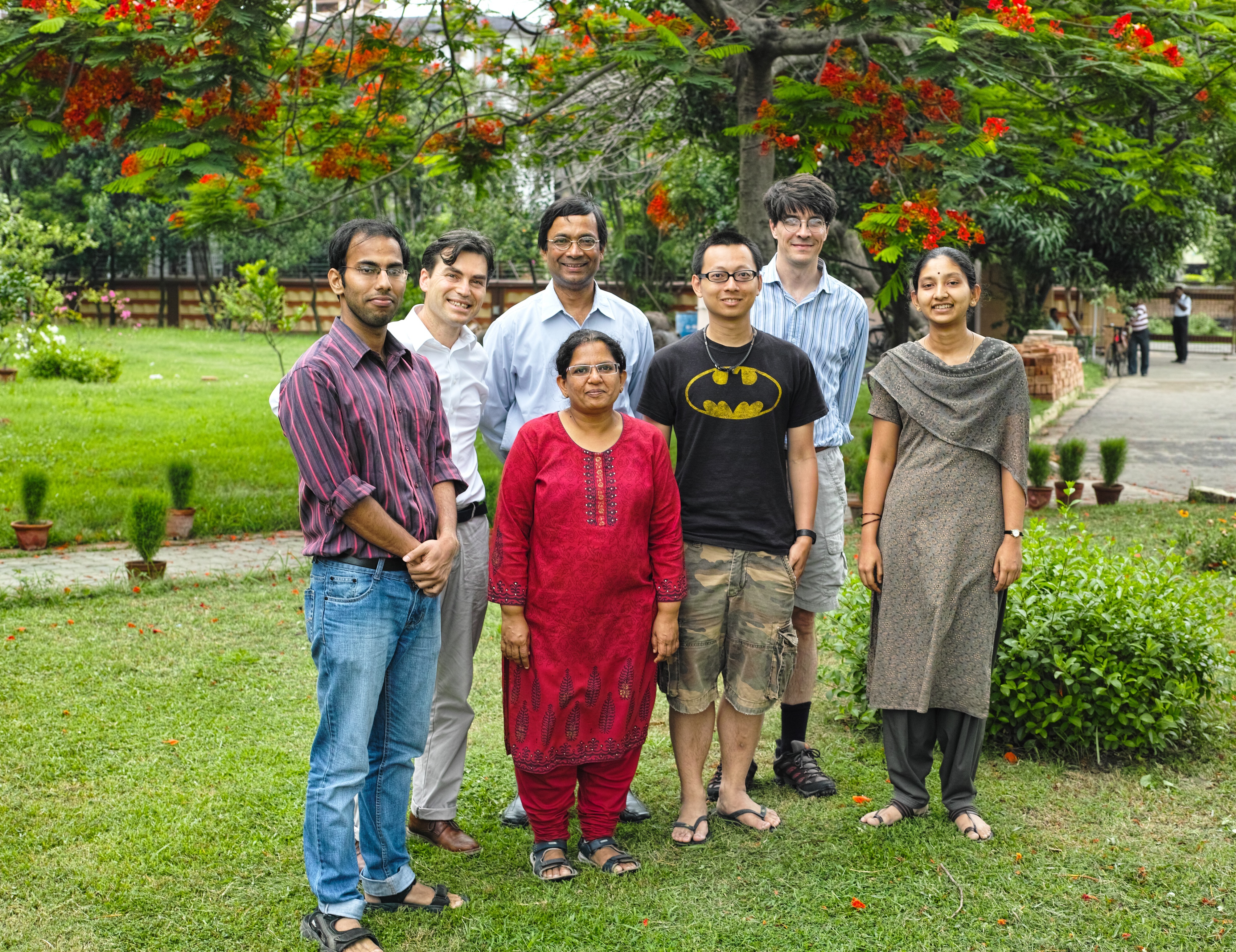
The University of Arkansas has become a partner in the Indo-U.S. Joint Center for Rational Control of Functional Oxides, which includes physicists in India and the United States who are investigating the properties of innovative "smart" materials and applications based on complex oxides.
Jak Chakhalian, professor of physics at the University of Arkansas, is one of five principal investigators who are collaborating on the two-year project, supported by the Indo-U.S. Science and Technology Forum.
The project is coordinated by principal investigators D.D. Sarma, of the solid state and structural chemistry unit at the Indian Institute of Science in Bangalore, India; and Andrew Millis, in the department of physics at Columbia University in New York.
"It's an innovative idea called a 'virtual hub,' which is a model that getting very popular in Southeast Asia," Chakhalian said. "It is a model that could be applicable to other departments at the University of Arkansas."
The initial goal of the center is to demonstrate the viability of human exchange and collaboration in producing the highest quality of research, said Chakhalian, who holds the Charles and Clydene Scharlau Chair in the J. William Fulbright College of Arts and Sciences.
The center's key researchers held a kick-start meeting in New York in April to define specific tasks for projects. As a first step, the U of A recently hosted physicist Priya Mahadevan of the S.N. Bose National Centre for Basic Sciences in Calcutta. In exchange, Srimanta Middey, a postdoctoral research associate at the U of A, spent three weeks this spring in Calcutta conducting joint research.
In May, Chakhalian, along with John Freeland of Argonne National Laboratory, operated by the U.S. Department of Defense near Chicago, visited the S.N. Bose National Centre for the first workshop held under the umbrella of the center.
"It allows each of us to travel to the different research 'hubs' for an extended period of time," Chakhalian said. "The main idea is that those hubs are not static and will be reconfigured based on the current interest and research goals and tools required to achieve them in shortest timescale. We need to demonstrate that we can successfully work together. If we can prove this is really a viable option, then there will be the next phase of the program: development of a physical location."
The researchers "will work toward obtaining a microscopic understanding of properties of transition metal oxide systems close to various instabilities through a combination of experimental and theoretical approaches," according to their funding award letter.
As for the prime goal of the center, the letter states, "The specific objective is the innovative synthesis of designer materials, detailed investigation of their physical properties as well as spectroscopic investigations to obtain microscopic information on their electronic and magnetic properties and theoretical modeling at several levels."
The Indian Institute of Science and S.N. Bose National Centre for Basic Sciences are considered the "Harvard and MIT of India," Chakhalian said.
"The visibility for this particular project lets the University of Arkansas shine on a worldwide scale," he said.
The Indo-US Science and Technology Forum, established under an agreement between the governments of India and the United States on March 21, 2000, aims to facilitate, seed and promote U.S.-India bilateral collaborations in science, technology, engineering and biomedical research.
Contacts
Jak Chakhalian, professor
physics
479-575-4313,
Chris Branam, research communications writer/editor
University Relations
479-575-4737,